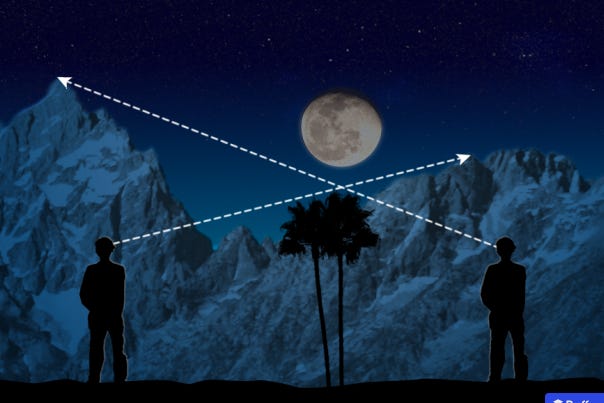Driving at night
I have had to stop driving at night as I need help knowing how close I am to stop signs and traffic lights. Is there anything to help with these symptoms that I find quite disabling?
Case study
I am a 22-year-old woman with MS. I have previously had optic neuritis in my right eye. Approximately 10 minutes after starting to exercise, I develop a blurring of vision in my right eye. Since having optic neuritis, I frequently misjudge things and knock things over, such as glasses of water and cups of tea. I have also had to stop driving at night as I need help knowing how close I am to stop signs and traffic lights. Is there anything to help with these symptoms that I find quite disabling? Thank you.
Prof G’s Opinion
More than half of people with established multiple sclerosis (pwMS) have had an episode of optic neuritis (an MS lesion in the optic nerve). Not all episodes of optic neuritis cause symptoms and can be subclinical. We can detect previous opt neuritis by doing visual evoked potentials and showing slowed neuronal conduction in one or both of the optic nerves. When assessing the retinae, we can also see asymmetric thinning of the retinal nerve fibre layer on OCT (optical coherence tomography). After a typical attack of optic neuritis, you can lose up to 20% of the nerve fibres in the optic nerve, which shows up on MRI as a smaller nerve compared to the unaffected side.
This tells us that focal inflammatory lesions are damaging and not something you want to have, which is why we try to prevent them with anti-inflammatory DMTs.
When optic neuritis recovers, the conduction speed of nerve impulses travelling through the recovered nerve rarely gets back to normal and is slower than the conduction speed in the unaffected eye. In addition, the conduction speed can change depending on fatigue or ambient temperature changes. The conduction in the affected, by remyelinated nerves, can even fail, resulting in intermittent blurring or loss of vision, called Uhthoff’s phenomenon. Many of you are aware of this symptom, and it is not unique to the eye and can affect all neuronal symptoms, including cognition. Many patients tell me their cognition goes off in hot weather and after they exercise.
The brain is usually good at compensating for the signals coming from the eyes at different speeds, but the one thing it is poor at doing is adjusting for depth perception. We have two eyes with overlapping visual fields or binocular vision for depth perception. This is why pwMS with previous optic neuritis may have poor depth perception, which affects their ability to judge where, for example, a cup or glass is on the table, and as a result of this, they often spill drinks. PwMS with a history of previous optic neuritis often have difficulty playing ball sports such as tennis, table tennis or any sport that requires accurate depth perception.
This short video shows how rapidly an electrical impulse passes down a normally myelinated nerve fibre. Compare it to the video below, which shows you how demyelination affects axonal or nerve fibre conduction. The impulse travels down the nerve fibre very slowly, requiring a lot more energy to do so, and becomes very sensitive to energy deficits and temperature changes. This is why conduction block happens during and after exercise. Try and imagine this happening all over the brain is someone with MS, and you will appreciate why pwMS require so much more mental energy to complete cognitive and other tasks. Clearly, the consequences of demyelination depend on the disease burden, and this is why the message of treating early and treating effectively is so important.
One function that seems very sensitive to this phenomenon is judging distances whilst driving at night; for example, estimating how far you are from the traffic intersection or a stop sign. Many of my patients don’t like driving at night because of this. Why? The brain uses a process called parallax to compensate for the loss of depth perception; i.e., the brain uses the relative size of familiar objects to help judge how far something is away from you in the distance. By using parallax, somebody who is blind in one eye can judge depth and distance relatively well. However, at night or in the dark, when images are not well illuminated, and colour vision drops, judgement by parallax fails, and depth perception deteriorates.
I would like to know if you have any problems with depth perception and driving at night. If you do, the chances are that you have had optic neuritis in the past. Unfortunately, we can do little to treat this phenomenon, but knowing about and understanding why it occurs may help you compensate for this impairment, disability or handicap.
From a theoretical perspective, fampridine, which is prescribed to pwMS to improve walking speed, should help with these visual phenomena. Case reports state this. Fampridine increases the safety factor of conduction and makes it less likely that an axonal impulse won’t be transmitted. However, on the NHS, we already have difficulty prescribing fampridine for its primary indication to improve walking, never mind for dealing with these visual symptoms. However, outside of the NHS, where neurologists don’t have to be straight-jacketed by NHS prescribing rules, you could ask your neurologist for a trial of fampridine. Many pwMS on fampridine report it helps their other MS-related symptoms, including cognition and fatigue.
If you have any personal anecdotes about fampridine improving other symptoms, particularly visual symptoms, we would like to hear about them.
You may find the following related MS-Selfie Newsletters helpful:
Parallax: Have you ever wondered why the setting sun and full moon on the horizon look so big compared to being smaller when it is above us in the sky? It is not bigger; simply having a reference on the horizon (trees, mountains, buildings, the sea, etc.) makes your brain perceive it as larger, i.e. closer. This is how parallax allows the brain to judge the distance from you to an object in the distance.
Subscriptions and donations
MS-Selfie newsletters and access to the MS-Selfie microsite are free. In comparison, weekly off-topic Q&A sessions are restricted to paying subscribers. Subscriptions are being used to run and maintain the MS Selfie microsite, as I don’t have time to do it myself. If people want to ask questions unrelated to the Newsletters or Podcasts, you must become a paying subscriber. If you can’t afford to become a paying subscriber, please email a request for a complimentary subscription (ms-selfie@giovannoni.net).
Important Links
X (formerly Twitter) / LinkedIn / Medium
General Disclaimer
Please note that the opinions expressed here are those of Professor Giovannoni and do not necessarily reflect the positions of Queen Mary University of London or Barts Health NHS Trust. The advice is intended as general and should not be interpreted as personal clinical advice. If you have problems, please tell your healthcare professional, who will be able to help you.






Although I am in a wheelchair, my doctor has prescribed the compound form (c-aminopyridine) for overall strength. I find it also helps with alertness.
thank you for bringing awareness to this. I find being a passenger also disorientating on long night journeys .I had ON 23 years ago, an early symptom with balance and vertigo problems. I stopped driving in the dark at night about 15 years ago. I have one route, its about a mile that is lit well enough without being like flood lights, it is in to our local town. i'll do this as I know it well enough. This means my husband can enjoy a drink.
I find going to different light strengths really difficult, and can't walk without another person in the dark, my balance goes. in my bedroom I have battery operated sensor lights and use the wall to get to the ensuite loo.
At some point I'm sure we will have to move nearer a town. living rurally it can be isolating with these limitations. I'm already down to yearly review on my driving licence.